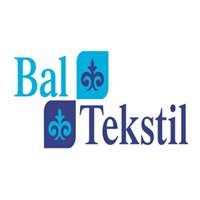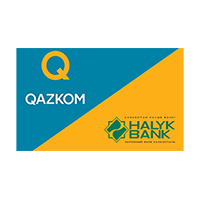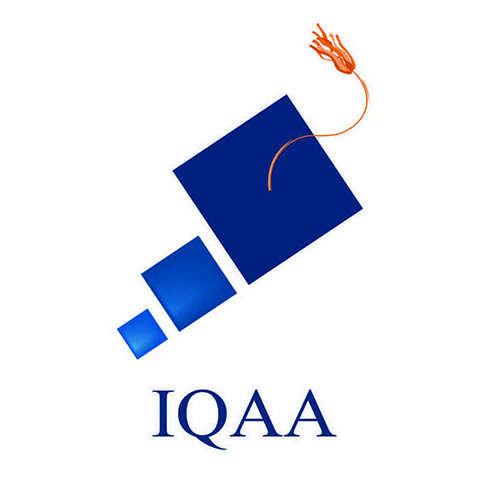Training program 6B04102 - “Economics and Management” is developed for training personnel in the field of economics and management as part of training bachelors of economics and business in compliance with the requirements of regulatory legal acts of the Republic of Kazakhstan in the field of education and is agreed with representatives of organizations of the real sector of the economy.
The goal оof the training program 6В04102 - “Economics and Management” is to prepare a specialist with practical skills and leadership skills, knowledge of the financial, economic, marketing problems of the functioning of enterprises, able to analyze the activities of economic objects, make managerial decisions, owning methods for constructing and using models for descriptions and forecasting of processes, phenomena, situations, while carrying out their qualitative quantitative analysis h and synthesis.
The educational program is designed in such a way that it can be adapted to the individual needs of each individual student within the framework of educational standards.
Features of the educational program:
- A project-oriented approach.
- Practice-oriented training formats: case study, master classes from leading practitioners, round tables and discussions, project seminars commissioned by business structures, etc.
- Training of highly qualified personnel in the field of economics with research skills, striving for professional growth and personal development.
In order to develop additional competencies complementary to students chosen profile, Minor programs are implemented, which consist of a track of thematically related elective disciplines.
Available Minors in the educational program:

Mobile Application Developer

Internet Technology Specialist

Specialist in maintenance of electrical equipment and electrical networks

Translator

Philologist

Fundamentals of law

The tour guide

Human health

The basics of mediation and positive personal thinking
Mastering a wide range of theoretical and practical knowledge in the field of economics, management and organization of production;
Formation and development of social and personal qualities: determination, diligence, responsibility, citizenship, adherence to ethical standards, the ability to work in a team;
Creation of prerequisites for independent research and analytical activities of students;
Providing targeted training for organizations;
Instilling skills in working with scientific, technical and economic information, to creatively use domestic and foreign experience in professional activities, to systematize the information received;
Ensuring connection of the learning process with science development; organization of practice-oriented training;
Developing students' ability to self-improvement and self-development, needs and skills of independent creative mastery of new knowledge throughout their active life;
Assistance to graduates of the training program in employment by organizing professional practice.
Key competencies in the training programThe ability to correctly formulate their thoughts in Kazakh, Russian and foreign languages, oral and written language skills;
The ability to demonstrate knowledge, skills, skills and competencies in the field of general education disciplines;
The ability to conduct research and project activities, including problem analysis, setting goals and objectives, identifying the object and subject of research, choosing the method and methods of research, working with information sources, owning academic writing, demonstrating a culture of academic integrity;
Ability to work in a team, interact with a team, jointly solve production tasks, possess business communication skills;
The ability to understand the role and importance of information and information technologies in the development of modern society, to master the methods of working with information, modern information networks, to be able to search, store, process and analyze information from various sources and databases, to apply information technology in solving professional tasks;
The ability to think creatively and critically, analyze, synthesize information when solving specific tasks, and defend your point of view in a reasoned manner;
The ability to realize the social significance of his future profession, has motivation for personal development, the implementation of professional activities;
Use methods of economic and mathematical modeling, planning, forecasting and optimization of indicators of activity statistics at micro and mark levels, processes, phenomena, situations;
Possess the theoretical foundations of marketing and marketing research in the company's activities on international markets in the promotion of the national brand;
Make informed management decisions and evaluate their effectiveness at the micro level, using entrepreneurial skills and skills of working in conditions of uncertainty and risks to implement innovative and investment projects (from the stage of idea generation to commercialization of innovation) in various fields of activity;
Possess the methodology and skills of planning, development of business plans, long-term and current plans of the enterprise and its divisions, general and functional strategies for the development of the enterprise to assess competitiveness; economically justify the strategies of financial management of the enterprise;
Use business plans of innovative projects and their commercialization, calculate the economic justification of the enterprise management strategy and increase its competitiveness;
Design work processes and workplaces, develop modern forms of payment and motivation for work, make informed management decisions to assess their effectiveness, manage people and their actions taking into account their capabilities, abilities and motivation for business efficiency;
To identify the directions of development and problems of the economy at the macro level, to determine the ways of state and legal regulation of the national economy and by spheres of activity to enter international and world markets;
Develop economically sound proposals, make management decisions in order to improve the efficiency of the company (industry), carry out research, monitoring, evaluation and management of the competitiveness of the business in the areas of activity, taking into account financial opportunities and expansion of the business.
Employability prospects for specialistsOrganizational and managerial;
Design; production and technological;
Service and operational;
Planning and economic;
Analytical;
Experimental research;
Consulting;
Methodical.
The name of the organization for which dual training is implementedLLP "Production company "RESONANCE";
LLP "Bal Textile";
SKILLS AND COMPETENCIES
Management, planning and control of financial and economic activities of economic entities
Acquisition of specifics of state regulation of the economy and international business operations of Kazakhstani enterprises
Implementation of strategic planning, project management
HR management, development and implementation of personnel motivation policies
Transformation of personal values and personal motivation. Adaptation to Stress and Mediation. Foundation of a healthy lifestyle. Cultural and Spiritual Development
Author's approaches to multilevel study of foreign languages
SPEAKERS AND MENTORS
Durru Oguz
General Director of LLP ‘Bal Textile’
Kumarbekov Diaz
Business Analyst, Financial Advisor, Graduated from KBTU, Almaty, BSc Economics, University of Essex, Colchester, England, MSc Applied Economics and Data Analysis
Esirkepova Altyn
Doctor of Economics, Professor
Kim Alexander
1C Certified Accountant Practitioner: 1C Specialist Consultant: ERP Production and Repairs
OUR PARTNERS

LLP "Bal Textile"

LLP "Energopotok"

AOF Halyk Bank / Kazkommertsbank

LLP "ERNUR press"

LLP "Asia Service"

JSC "HIMFARM" / "SANTO"

LLP "DANI NAN"
EMPLOYMENT
Business companies and enterprises
State budget organizations at the republican and local levels
Banks, pawnshops and insurance companies
Consulting and auditing firms
CAREER & INCOME
Economist — from 100 000 KZT
Production specialist — from 200 000 KZT
Development Specialist — from 170 000 KZT
Business Planning Consultant — from 120 000 KZT
Specialist at the department of planning — from 100 000 KZT
ADMISSION
On the School basis
- Documents:
UNT, ID
- Entrance tests:
Not applicable
- Training period:
3 years +Second higher education
- Documents:
Diploma, ID
- Entrance tests:
Job interview
- Training period:
Minimum 1 year 8 monthsBased on TVE (College)
- Documents:
UNT, ID
- Entrance tests:
Not applicable
- Training period:
Min: 2 years 6 months
Tastemir Perizat. Graduated in 2018. Manager at Alfa Bank JSC, Shymkent
Muzrapov Alisher. Graduated in 2013. Pavlodar Technical Plant, Head of the Department of Economists “Price Expertise”
Kurbanov Nurken. Graduated in 2013. Graduated in 2016. Procurement Manager at the Branch of ‘Eskery Urylys Astana’ LLP for maintenance and servicing “South”
Fedorova Svetlana. Graduation 2013. Graduation 2016. Miras College majoring in Accounting, Economics and Auditing (2010-2013). Miras University specialty "Economics" (2013-2016). Nefteremmash LLP - accountant
Independent Kazakhstan Agency for Quality Assurance in Education - IQAA. Certificate of Specialized Accreditation SA No. 0130/4 of 01.29.2018

Sagynbekuly Nұrbol gr. EC-711k. Participation in the IV international competition of startup projects "My own business 2019", certificate
Gack Svetlana gr.EC-511k-1. Republican Student Subject Olympiad in the discipline "Economic Theory" 2nd prize., 2017
Gack Svetlana, Usmanova Shakhnoza. group EC-511k-1 - 1C certification: Professional, Asia Service LLP
Usmanova Shakhnoza, gr. EC-511k-1:
2018: III international competition of startup projects “My own business 2018” - 1st place in the project;
2017: 1st place in the Republican Research and Practical Conference “Innovations and Practical Realities in the Sphere of Economics, Law and Information and Communication Technologies”, Shymkent;
2016: 1st place in the International Conference on the Processes of Integrated Thinking: Preserving the Past, Creating the Future, Shymkent.Typical curriculum of the educational program 6B04102 - Economics and management
Name of disciplines Cycle of disciplines ECTS Brief description of the disciplines Kazakh (Russian) Language GED 5 Issues under study: phonetic features, grammatical structure of the Kazakh language; basic vocabulary by fields of application (household, terminological, general scientific, business); methods of word formation, phraseological units; rules of translation technique; rules of spelling and punctuation; culture and traditions of Kazakhstan; rules of speech etiquette; rules of communicative behavior in situations of everyday, business, scientific and professional communication. Formed competencies: implementation of oral communication in dialogical and monological forms in situations of everyday, scientific, professional and business communication; implementation of communicative intentions in various types of written speech; maintaining contacts using e-mail; possession of communication skills in the process of official and informal contacts, in the field of everyday and professional communication; public speech skills; oral and written translation skills. Foreign Language GED 5 Issues under study: phonetic features, grammatical structure, of the English language; basic vocabulary by fields of application (household, terminological, general scientific, business); methods of word formation; rules of translation techniques; rules of spelling and punctuation; rules of speech etiquette; intercultural features and rules of communicative behavior in situations of everyday, business, scientific and professional communication. Formed competencies: implementation of oral communication in dialogical and monological forms in situations of everyday, scientific, professional and business communication; implementation of communicative intentions in various types of written speech; possession of communication skills in the process of official and informal contacts, in the field of everyday and professional communication; public speech skills; oral and written translation skills. Kazakh (Russian) Language GED 5 Issues under study: phonetic features, grammatical structure of the Kazakh language; basic vocabulary by fields of application (household, terminological, general scientific, business); methods of word formation, phraseological units; rules of translation technique; rules of spelling and punctuation; culture and traditions of Kazakhstan; rules of speech etiquette; rules of communicative behavior in situations of everyday, business, scientific and professional communication. Formed competencies: implementation of oral communication in dialogical and monological forms in situations of everyday, scientific, professional and business communication; implementation of communicative intentions in various types of written speech; maintaining contacts using e-mail; possession of communication skills in the process of official and informal contacts, in the field of everyday and professional communication; public speech skills; oral and written translation skills. Foreign Language GED 5 Issues under study: phonetic features, grammatical structure, of the English language; basic vocabulary by fields of application (household, terminological, general scientific, business); methods of word formation; rules of translation techniques; rules of spelling and punctuation; rules of speech etiquette; intercultural features and rules of communicative behavior in situations of everyday, business, scientific and professional communication. Formed competencies: implementation of oral communication in dialogical and monological forms in situations of everyday, scientific, professional and business communication; implementation of communicative intentions in various types of written speech; possession of communication skills in the process of official and informal contacts, in the field of everyday and professional communication; public speech skills; oral and written translation skills. Social and Political Studies Module (Sociology, Political Science, Cultural Studies, Psychology) GED 8 Issues under study: the main categories of political science, sociology, cultural studies and psychology; socio-ethical values of society; social, political, cultural, psychological institutions of society in the context of their role in the modernization of Kazakh society and the principles of their functioning. Formed competencies: explanation and interpretation of concepts, ideas, theories of sociology, political science, cultural studies, psychology; description, analysis of current problems of modern Kazakh society, social processes; analysis of the features of social, political, cultural, psychological institutions in the context of their role in the modernization of Kazakhstan's society; designing prospects for the development of Kazakhstan's society, solving social, political, personal problems, interpersonal and social conflicts; expressing one's own opinion on issues of social significance; generating ideas on issues of socio-political development of society and presenting them. Physical Education GED 2 Issues under study: the discipline is focused on the consideration of the following issues: the importance of physical culture in human life; the values of physical culture and sports; factors that determine human health; the concept of a healthy lifestyle and its components; methodological foundations of physical education, the foundations of self-improvement of physical qualities and personality traits; the influence of health-improving systems of physical education on health promotion. Formed competencies: demonstration of the implementation of mandatory and individually selected complexes of physical exercises, including recreational and adaptive physical culture; maintaining a healthy lifestyle; maintaining and developing basic physical qualities in the process of physical culture; possession of means and methods of strengthening individual health, physical self-improvement, various forms of motor activity for successful socio-cultural and professional activities. Physical Education GED 3 Issues under study: the discipline is focused on the consideration of the following issues: the importance of physical culture in human life; the values of physical culture and sports; factors that determine human health; the concept of a healthy lifestyle and its components; methodological foundations of physical education, the foundations of self-improvement of physical qualities and personality traits; the influence of health-improving systems of physical education on health promotion. Formed competencies: demonstration of the implementation of mandatory and individually selected complexes of physical exercises, including recreational and adaptive physical culture; maintaining a healthy lifestyle; maintaining and developing basic physical qualities in the process of physical culture; possession of means and methods of strengthening individual health, physical self-improvement, various forms of motor activity for successful socio-cultural and professional activities. Physical Education GED 3 Issues under study: the discipline is focused on the consideration of the following issues: the importance of physical culture in human life; the values of physical culture and sports; factors that determine human health; the concept of a healthy lifestyle and its components; methodological foundations of physical education, the foundations of self-improvement of physical qualities and personality traits; the influence of health-improving systems of physical education on health promotion. Formed competencies: demonstration of the implementation of mandatory and individually selected complexes of physical exercises, including recreational and adaptive physical culture; maintaining a healthy lifestyle; maintaining and developing basic physical qualities in the process of physical culture; possession of means and methods of strengthening individual health, physical self-improvement, various forms of motor activity for successful socio-cultural and professional activities. Ecology and life safety GED 5 Issues under study: the content and tasks of ecology; the concepts of the ecosystem and the biosphere; the circulation of substances and the flow of energy in ecosystems; global problems of humanity; legislative measures for nature protection; conditions for the occurrence of environmentally hazardous and emergency situations, patterns of their manifestation; classification, characteristics and forecasting of emergencies; development and implementation of measures to protect humans and the environment from negative impacts, first aid, etc. Formed competencies: assessment of the impact of environmental factors on human health; identification of the main hazards of the human environment; choice of methods of protection against hazards; possession of methods and technologies of protection in emergency situations; ability to provide first aid self-and mutual assistance; effective action in the event of a threat and occurrence of extreme situations and emergencies; determination of symptoms of the human body in case of injuries; correct use of first aid kits. Fundamentals of Law GED 5 Issues under study: law and its place in the system of social regulation; the main forms (sources) of law; legal norms and legal relations; lawful behavior and offenses; the basics of the legal status of a person and a citizen of the Republic of Kazakhstan, the main branches of law, etc. Formed competencies: orientation in matters of current legislation; possession of skills in analyzing normative legal acts, relations regulated by law, legal analysis of information; application of legal norms in specific situations, following moral and legal norms in everyday practice; expression and justification of one's own point of view on legal issues; conducting polemics in the legal field. Bases of Anticorruption Culture GED 5 Issues under study: the essence of corruption as a social and legal phenomenon; the manifestation of corruption in public life; the measure of moral and legal responsibility for corruption offenses; the current legislation in the field of combating corruption; prevention of offenses. Formed competencies: orientation in matters of current legislation; possession of skills in analyzing normative legal acts, relations regulated by law, legal analysis of information; application of legal norms in specific situations, following moral and legal norms in everyday practice; expression and justification of one's own point of view on issues of law and anti-corruption culture; conducting polemics in the legal field. Fundamentals of economics and entrepreneurship GED 5 Issues under study: the role and importance of the economy in the life of society; the laws of production, exchange and distribution of material goods; the theoretical foundations of the functioning of the market economy; the fundamentals of the enterprise economy; the content and essence of entrepreneurship; types and forms of entrepreneurial activity. Formed competencies: application of economic knowledge in specific situations; implementation of economic calculations; determination of one's own capabilities in carrying out entrepreneurial activity; use of knowledge of the basics of entrepreneurship for organizing one's business; development of a business plan; readiness to create an entrepreneurial unit and organization of its activities. Fundamentals of innovation and innovation activity GED 5 Issues under study: the essence of the concepts of «innovation», «innovative activity», «innovative project»; classification of innovations; factors determining innovative activity; sources of innovative ideas; priorities of innovation policy at various levels of economic management; the main models of innovative development. Formed competencies: analysis and evaluation of innovative projects; planning of work on the implementation of innovations, presentation of innovative projects; implementation of business planning of innovative projects. Fundamentals of leadership and team building GED 5 Issues under study: the essence of the concepts of «leadership», «team», «team building»; leadership models and their typology; leadership styles; models of leadership decision-making, technologies of team formation. Formed competencies: analysis and evaluation of leadership styles; assessment of the conditions and consequences of the implementation of various leadership styles; methods and techniques of team formation. Fundamentals of academic writing BD 5 Issues under study: the concepts of «academic writing», genres of academic writing (abstract, essay, review, abstract, scientific article, etc.), the basic principles of compiling and formatting academic texts and their presentation. Formed competencies: creation of written academic texts of various genres; design of a written text in accordance with accepted norms, requirements, standards; skills and abilities of compiling a bibliographic description of printed publications and electronic resources; skills of analytical work with scientific sources; editing of academic texts; critical evaluation of written works. Organization of project activities BD 5 Issues under study: the basics of project activity; design technologies; implementation and effective project management; methods of collecting initial data and design methods, methods of project development and implementation. Formed competencies: knowledge of methods of collecting and analyzing information; design and preparation of projects; possession of tools for organizing project activities; setting goals and objectives at each stage of project implementation; development of ways to solve the problem; practical application of design methods in professional activities. Oratory Art BD 5 Issues under study: the main categorical apparatus of public speaking; the history of public speaking; strategies and tactics of effective speech communications; an algorithm for creating an effective public message; discussion and polemics. Formed competencies: the ability to clearly express their thoughts, feel confident during communication and speech; possession of voice and expressiveness of speech; managing the attention of listeners; the ability to answer unexpected questions, effectively convince opponents and influence listeners; knowledge of methods and techniques for analyzing the partner's speech behavior, methods of self-control. Workshop on the development of critical and creative thinking BD 5 Issues under study: the nature, structure, functions of critical and creative thinking and methods of their formation; models of critical thinking; methods of stimulating, functions, types of creative thinking; the current state of decision-making theory; conceptual support for the decision-making process; tools of critical and creative thinking necessary for decision-making; types, strategies and methods of decision-making. Formed competencies: the ability to distinguish critical and creative ways of thinking from other forms of intellectual activity; possession of methods and techniques of creative thinking; the use of various models of critical and creative thinking in practice; the implementation of a critical analysis of the situation in the decision-making process based on awareness and interpretation procedures; the formulation and reasoned defense of one's own position on various problems, as well as the correct refutation of the opponent's position. History of Kazakhstan GED 5 Issues under study: basic facts, processes and phenomena, concepts, theories, hypotheses characterizing the integrity and consistency of the integrity of the historical process; periodization of world and national history; modern versions and interpretations of the most important problems of national and world history; features of the historical path of Kazakhstan, its role in the world community. the most important methodological concepts of the historical process, their scientific and ideological basis; features of historical, historical-sociological, historical-political, historical-cultural, anthropological analysis of events, processes and phenomena of the past; historical conditionality of the formation and evolution of public institutions, systems of social interaction, norms and motives of human behavior; interrelationship and features of the history of Kazakhstan and the world, national and regional, confessional, ethnonational, local history. patterns of social development; features of development of Kazakhstan; the main historical facts and events of the socio-economic and political life of Kazakhstan at all stages of its development. Formed competencies: formation of objective historical knowledge about the main stages of the history of Kazakhstan from the ancient era to the present day, about the continuity and continuity of ethnogenesis, the formation and development of the statehood of the Kazakh people; mastering knowledge about the main stages of the development of human society from antiquity to the present day in the social, economic, political, spiritual and moral spheres with special attention to the place and role of Kazakhstan in the world-historical process; the development of the ability to analyze information contained in various sources about events and phenomena of the past and present, guided by the principle of historicism, in their dynamics, interrelation and interdependence, and the formation of historical thinking — the ability to consider events and phenomena from the point of view of their historical conditionality, to compare different versions and assessments of historical events and personalities, to correlate their views and principles with historically emerged worldview systems, to determine their own attitude to the controversial problems of the past and present. Introduction to Practice BD 2 The educational practice is aimed at obtaining primary professional skills in the field of economics, the formation of a stable interest in the profession, professional orientation. Theory of Economics BD 5 Issues under study: general fundamentals of economic development; the subject and method of economic theory; economic needs and interests; the economic system of society; property relations; forms of organization of social production and their evolution; patterns of development of transitional economies; general fundamentals of the market; market economy; competition and monopoly in a market economy; capital, costs and profit; national production and reproduction; state regulation of the economy; economic growth and cyclical development of the economy; world economy; globalization of the economy. Formed competencies: demonstration of scientific economic thinking for the independent application of methods, methods, tools of analysis in any field of economics; knowledge of general problems of economic development and the theoretical foundations of social production; possession of special economic terminology and vocabulary; familiarization with the achievements of domestic and foreign economic thought. SMM marketing BD 5 Issues under study: the concept of marketing; marketing research; tools of an Internet marketer; a Web site as a marketing tool; search engine promotion of a site, its main principles and features; search engine promotion of a site, its main principles and features; evaluation of the effectiveness of website promotion; strategies and tools of marketing in social media. Formed competencies: formation of the basic concepts of SMM; knowledge of the basic methods of evaluating SMM campaigns, technologies for attracting an audience to SMM; skills of organizing audience participation in the production of media products, the exchange of media content, including using interactive network exchanges. Philosophy GED 5 Issues under study: categories of philosophy, philosophical understanding and understanding of the role and place of education, science, technology, technology, man, art, freedom, culture, religion in society, methods of scientific knowledge, the evolution of philosophical thought from antiquity to the present. Formed competencies: understanding and explaining the specifics of the philosophical understanding of reality; interpretation and justification of the content and specific features of the mythological, religious and scientific worldview; demonstration of methods of scientific and philosophical knowledge of the world in the implementation of project and research activities; argumentation of one's own position in relation to topical philosophical issues, global problems of modern society. Psychology of communication and conflict management BD 5 Issues under study: the essence of communication; communicative, interactive, perceptual aspects of communication; communication functions; communication structure; types of communication; communication models; verbal and non-verbal means of communication; communication levels; the social nature of conflicts; causes of conflicts; types of conflicts; dynamics and mechanisms of conflict; conflict management in the organizational system. Formed competencies: application of techniques and techniques of effective communication in professional activity; possession of methods of self-regulation of behavior in the process of interpersonal communication; possession of methods of interpersonal, intercultural, interethnic and business communication; identification of the causes of conflicts; management of the conflict process and their behavior in conflict; analysis of conflict situations; use of knowledge in the field of conflict management in practice for the prevention and resolution of conflict situations in the field of management; organization of negotiations and the use of various technologies of the negotiation process in practice. Information technologies in the professional activity of a specialist in the field of business and management BD 5 Issues under study: the composition and functions of information and telecommunications technologies, the possibilities of their use in the professional activity of a specialist in the field of business and management; the basic rules and methods of working with application software packages; the concepts of information systems", "information technologies"; theoretical foundations, types and structures of databases; the possibilities of network technologies for working with information. Formed competencies: the use of software in the professional activity of a specialist in the field of business and management; the use of computer and telecommunications tools; skills of working with information reference systems; the use of application programs in professional activities; the ability to use the resources of local and global information networks." Technology of professional success of a specialist in the field of business and management BD 5 Issues under study: social functions and significance of the sphere of management and sales, value bases of professional activity of a specialist in the field of business and management; requirements for personal and professional qualities of a specialist in the field of business and management; regulatory documents regulating the activities of a specialist in the field of business and management; outstanding specialists in the field of management, marketing; career development trajectories, professional ethics. Formed competencies: demonstration of the ability and readiness to understand modern issues in the field of business and management, professional ethics; application of the principles and rules of professional ethics and etiquette in professional activity; possession and demonstration of individual features of professional image modeling; possession of methods of professional and personal image. Microeconomics BD 5 Issues under study: the subject and methods of microeconomics; the market mechanism of economic regulation; the elasticity of supply and demand; the effect of taxes; the theory of consumer behavior; comparative statics of demand and its analysis; the theory of production; production costs; the behavior of a firm in conditions of perfect competition; the behavior of a monopolist firm; the activity of a firm in conditions of monopoly competition and oligopoly. Emerging competencies:demonstration of theoretical and practical knowledge in the field of economic processes at the micro level, as well as the formation of general cultural, general professional and professional competencies necessary in professional activity. Government Regulation of Economy BD 5 Issues under study: the theoretical aspect of state regulation of the economy and its object; the concept of the GRE methodology and its main elements; the organizational foundations of economic regulation and its foreign experience; economic growth; forecasting, strategic and indicative planning; state activities to regulate the development of the agricultural sector of the economy; the regulatory role of the state in the development of industrial infrastructure; the formation and mechanisms for implementing the state's investment policy; state regulation of employment and social protection of the population; financial and budgetary methods of regulating the economy; the main mechanisms for implementing the monetary policy of the state; state regulation of foreign economic activity. Formed competencies: formation of theoretical knowledge in the field of macroeconomic regulation and management of socio-economic development of the country and regions; familiarization with the experience of various states on macroeconomic regulation in modern conditions; knowledge of the functioning of the main subjects of state regulation of the market economy. Government Procurement and E-Business BD 5 Issues under study: basic concepts of e-business; traditional commerce and e-commerce; economic forces and e-commerce; regulatory framework for interdepartmental interaction of e-business companies; the main forms of companies ' presence on the Internet; electronic branding and marketing; electronic auctions, public procurement. Formed competencies: knowledge of the main achievements in the field of telecommunications, network structures, information systems, which make it possible to significantly increase the efficiency of business and create fundamentally new directions for its development; skills in studying modern features of managing the system of state orders at the national and regional levels. Human resource management and HR consulting BD 7 Issues under study: the basics of human resource management; the practice of human resource management; providing human resource management systems; analysis of the organization's human resources potential; organizational behavior in human resource management; planning and forecasting of human resources; the process of recruitment, selection and hiring of personnel; adaptation, evaluation and training of personnel; the effectiveness of human resource management; remuneration and rationing of personnel; conflict situations, conflict management; current trends in personnel management. Formed competencies: knowledge of the general theoretical foundations of human resource management of the organization; knowledge of modern technologies of human resource management; skills of forming a modern approach to management systems in the field of personnel management, to understand the effectiveness of human resource management, the development of modern technologies in the field of human resource management. Competitiveness of the enterprise BD 7 Issues under study: the role of personnel evaluation in the personnel management system; methods of personnel evaluation; evaluation procedure; structure of evaluation forms; evaluation scale; evaluation interview; the relationship of the evaluation system with the material and non-material motivation of personnel. Formed competencies: knowledge of the basic theories of motivation; skills in using various incentive and remuneration systems; knowledge of the modern theory and practice of motivating the work of personnel; mastering practical skills in organizing and motivating the work of personnel; skills in managing processes for the effective distribution of labor resources and improving their quality. Development of Management Decisions PD 5 Issues under study: the nature and characteristics of solutions; concept and types of administrative decisions; the stages and steps of the process of managerial decision-making; decision-making; the process of developing managerial decisions on example of a specific problem situation; selection and resource allocation process development of management decisions; basic concepts and principles of management decisions; selection and resource allocation in the process of developing managerial decisions; the psychology of managerial decision-making approaches to developing solutions and their effectiveness. Formed competencies: the formation of skills for using modern methods of developing and making various kinds of managerial decisions at the level of the educational organization, as well as the ability to independently create and adapt such methods to specific conditions. Decision-making Methods PD 5 Issues under study: the process of developing and making managerial decisions; classification of managerial decisions; conditions and factors affecting the decision-making process; methods of analyzing managerial decisions; methods of forecasting managerial decisions; modeling in decision-making theory; collective methods of justifying and making managerial decisions. Formed competencies: study of the theoretical and methodological foundations of the process of developing and making managerial decisions; skills of studying the specifics of various methods and models of managerial decision-making; consideration of existing technologies for substantiating and evaluating the effectiveness of managerial decisions; skills of analyzing the features of managerial decision-making methods in conditions of certainty, uncertainty and risk. Information and Communication Technologies GED 5 Issues under study: the content and trends in the development of information and communication technologies; methods of collecting, storing and processing information, methods of implementing information and communication processes; conceptual foundations of the architecture of computer systems, operating systems and networks; architecture of computer systems and networks, the purpose and functions of the main components; concepts for the development of network and web applications, information security tools. Formed competencies: skills of using modern information and communication technologies in various fields of professional activity, scientific and practical work and other purposes; justification of the choice of the most appropriate technology for solving specific tasks; the ability to use Internet information resources, cloud and mobile services for searching, storing, processing and distributing information; the ability to use software and hardware of computer systems and networks for data collection, transmission, processing and storage; analysis and justification of the choice of methods and means of information protection; the ability to develop data analysis and management tools for various types of activities; implementation of project activities using modern information and communication technologies. Enterprise Economics BD 5 Issues under study: the nature and characteristics of enterprises in market conditions; organizational and legal forms of organization; the nature, value of fixed assets; economic essence of working capital; the nature, classification, structure and value of capital investments; personnel of enterprises, their classification and structure; productivity; the nature of wages, principles, methods of calculation and planning; the essence of the value of the cost of production; profit and rentabelnosti enterprises; principles and methods of planning; key performance indicators of the organization. Formed competencies: the formation of complete and reliable information about the economic processes and financial results of the organization's activities; the deonstration of practical skills for determining economic indicators and the economic efficiency of the organization's activities; the ability to calculate the main technical and economic indicators of the organization's activities according to the accepted methodology. Macroeconomics BD 5 Issues under study: the subject and method of macroeconomics; macroeconomic indicators; macroeconomic instability; macroeconomic models of market equilibrium in the short and long term. AD-AS model; consumption and savings; models of market interaction. The IS-LM model; models of market interaction; the IS-LM model; fiscal policy and monetary policy; economic growth theory; budget deficit and public debt; balance of payments and exchange rates; exchange rate regimes and aggregate demand; international trade and trade policy. Formed competencies: knowledge of the principles, methods of macroeconomics, about the main macroeconomic models in order to objectively assess the effectiveness of economic policy; mastering the skills to analyze macroeconomic indicators and macroeconomic models; the ability to assess the effectiveness of state macroeconomic policy. Production practice 1 [EC] BD 5 Industrial practice 1 is aimed at obtaining professional skills in the field of economics and management, forming an interest in the profession, allowing you to navigate the labor market and find yourself in a future profession. Development of mobile applications in the Android Studio environment (minor) PD 5 Issues under study: architecture of mobile operating systems; methods of creating mobile applications for the Android platform. Formed competencies: knowledge of the Android platform; skills in developing mobile applications in the Android Studio development environment using the Java programming language and XML markup language; skills in mobile programming of mobile versions of Internet services and online stores in the Android Studio development environment. Cybersecurity of information (minor) PD 5 Issues under study: approaches and methods of developing various types of secure information systems. Formed competencies: knowledge of general concepts of security in the information society; understanding of information security technologies; ability to apply cybersecurity rules in all spheres of activity. Theory of electrical circuits (minor) PD 5 Issues under study: basic laws of linear DC electrical circuits; methods for calculating currents; methods of imaging and parameters of sinusoidal electrical quantities; calculation of sinusoidal current circuits; calculation, measurement and analysis of circuits with serial and parallel connection of receivers; electrical circuits with mutual inductance; calculation of three-phase circuits; electrical circuits with non-sinusoidal periodic effects. Formed competencies: mastering the skills to calculate linear and nonlinear electrical circuits with concentrated and distributed parameters in stationary and transient modes; skills and abilities to analyze and calculate four-pole and electric filters; skills of modeling electrical circuits based on the use of applied software, experimental research of electrical circuits. Interpretation practice (minor) PD 5 Issues under study: language tools in various pragmatic situations, depending on the specifics of the audience; the formation of interpretation skills based on highly specialized texts; the development and consolidation of methods and tools of translation technology; Formed competencies: the ability to choose lexical units in accordance with the knowledge of the subject of translation, to perform various translation transformations based on the use of lexical and grammatical transformations, to transmit terms of a special orientation, to highlight the technique of writing in sequential translation and ""decoding"" recorded sentences, to conduct translation activities in accordance with the place and context of translation. The main directions of modern linguistics (minor) PD 5 Issues under study: cognitive linguistics, scientific directions of linguistics, stages of the cognitive linguistics paradigm; recent achievements in the study of the science of cognitive linguistics in foreign and Russian linguistics; scientific directions in Kazakh linguistics; structural linguistics; history of the study of the science of anthropocentric linguistics. Formed competencies: to know the scope of the anthropocentric paradigm, the periods of the paradigm of cognitive linguistics, schools, representatives, the course of research; the formation of directions in Kazakh linguistics; structural, comparative-historical, anthropocentric directions in linguistics. Constitutional law of the Republic of Kazakhstan (minor) PD 5 Issues under study: the main provisions of constitutional law, legislation; the basic rights and obligations of citizens of the Republic of Kazakhstan; the structure, principles of organization and activities of state bodies (the President of the Republic of Kazakhstan, Parliament, Government, Constitutional Council, etc.), their acts; the foundations and prospects for the development of forms of direct democracy in the Republic of Kazakhstan. Formed competencies: the ability to interpret and apply constitutional legislation; the ability to make decisions and perform legal actions in strict accordance with the law; skills in applying normative legal acts; mastering the skills to implement the norms of substantive and procedural law in the professional activity of a lawyer; the ability to legally correctly qualify facts and circumstances. Geography of international tourism (minor) PD 5 Issues under study: modern research methods in the field of international tourism, factors determining the spatial development of tourism, natural and anthropogenic components that make up tourist resources, as well as prerequisites for the organization and development of tourism on the territory of tourist macro-regions and subregions of individual countries. Formed competencies: study of the basics of the formation of the main tourist flows of international tourism Basics of a healthy lifestyle (minor) PD 5 Issues under study: the basics of a healthy lifestyle, motivational-value and activity attitude to health through the expansion, systematization and personal mediation of knowledge, skills and abilities; The formed competencies are aimed at the formation and promotion of a healthy lifestyle, the use of physical culture, natural forces of nature, restoration of working capacity, ensuring active longevity. Basics of mediation (minor) PD 5 Issues under study: the main provisions of normative acts applied in the field of mediation; theoretical knowledge in the field of prevention, settlement and resolution of disputes, organization of negotiations with the participation of a neutral mediator (mediator); Emerging competencies: the ability to apply this knowledge in subsequent practical activities. Entrepreneurship BD 5 Issues under study: the content of entrepreneurial activity; objects and subjects of entrepreneurship; organizational and legal foundations of entrepreneurial activity; entrepreneurial idea and its implementation; business planning in entrepreneurial activity; small business and its place in the entrepreneurship system; investments in entrepreneurial activity; taxation of entrepreneurial activity; assessment of the effectiveness of entrepreneurial activity. Formed competencies: demonstration of knowledge of the content and essence of entrepreneurial activity, its types and forms, the basics of forming a culture of entrepreneurship, as well as the principles of business ethical behavior of an entrepreneur; the ability to formulate a bank of entrepreneurial ideas, make a business plan, create an entrepreneurial structure and organize its activities; possession of special terminology, the main forms of cooperation in the field of production, principles and methods of evaluating the effectiveness of entrepreneurial activity and self-organization of a person in a specific business environment. Accounting and analysis BD 5 Issues under study: the theory and principles of accounting; accounting method and its elements; the basics of technology and organization of accounting in business entities; accounting policy; the nature, objectives and content of economic analysis, its role in the enterprise management system; the object, method and methodology economic analysis; information support of economic analysis; the system of integrated economic analysis and search of reserves of increase of efficiency of the business. Formed competencies: knowledge of the essence of accounting, objects of accounting supervision; knowledge of the processes of creating and developing an accounting system and understanding the features of accounting for various economic transactions; acquisition of practical skills in analyzing and evaluating areas of economic activity. Crisis Management PD 5 Issues under study: economic bases of crisis situations; crises in the development of an organization; mechanisms of state regulation of crisis situations; legal bases of financial recovery and bankruptcy of organizations; diagnostics of the state of insolvent enterprises; bankruptcy forecasting; strategy in anti-crisis management; tactical solutions in anti-crisis management; methods of financial recovery of insolvent organizations; financial management of an insolvent organization. Formed competencies: knowledge of the concept of anti-crisis management in a market economy based on the study of the laws of the development of economic systems, the theoretical foundations of anti-crisis management, the methodology of recognition, diagnostics; skills of making and implementing management decisions to prevent or overcome the crisis of the organization. Risk Management PD 5 Issues under study: risk management of companies and budget organizations: general trends and conceptual issues; organization of risk management in the corporate environment; characteristics of the risk management process; financial aspect of risk management in companies and budget organizations; personnel risk management; methods of risk assessment, risk analysis and cost-effectiveness analysis; administrative and economic risk management; the role of economic information in risk reduction; ways to reduce (neutralize) risks. Formed competencies: knowledge of the essence and types of economic risks; skills to identify the causes of each type of risk; skills to study the scope of pure and speculative, including financial risks; mastering strategic and tactical techniques for managing various types of risks, as well as the possibility of combining them. In-corporate planning PD 5 Issues under study: technical and economic planning; planning of technical and organizational development of production; planning of the production program and production capacity of the enterprise; planning of material and technical support at the enterprise; planning of labor indicators at the enterprise; intra-company planning of production costs; financial planning at the enterprise. Formed competencies: knowledge of modern problems of the theory and practice of intra-company planning, the directions of its improvement; knowledge of the methodology for calculating the main indicators of intra-company plans: the production and sales plan, the technical development plan and the organization of production, the logistics plan, the labor and personnel plan, the cost plan and the financial plan. Budgeting in Excel BD 5 Issues under study: setting up a budget management system, a budget system in a company, a budget formation algorithm, methods of collecting information for forming a package of budget forms, budgeting in a company – practical aspects of budgeting based on Excel, sales budget and production budget – choosing the optimal option, iteration process, consolidation and verification of the information received for adequacy. Generated questions: independently build operational budgets and the main budget, as well as form the necessary budget formats using Microsoft Excel; Programming in an X-Code environment for IOS (minor) PD 5 Issues under study: Swift and Objective-C programming languages in the XCode visual programming environment; programming for Mac OS and iOS operating systems. Formed competencies: knowledge of practical experience in programming applications and mobile applications for Mac OS and iOS operating systems. JavaScript scripting language (minor) PD 5 Issues under study: the syntax of the JavaScript scripting language and its effective application in programming Internet applications; the main features of the JavaScript programming language and the practical application of this language in solving problems related to programming Internet applications. Formed competencies: knowledge of web programming skills and creation of interactive websites using the JavaScript language. Installation, adjustment and operation of electrical equipment (minor) PD 5 Issues under study: the structure and tasks of electrical installation organizations, the basics of their organization, industrialization and mechanization; general information about couplings and seals, their purpose and classification. Formed competencies: mastering the skills of fault detection, repair, installation and adjustment of open and closed wiring and electrical installations; mastering the skills of calculating the main technical and economic indicators of electrical equipment; skills of quality control of electrical work, testing equipment, cable lines. Written translation experience (minor) PD 5 Issues under study: features of written translation of a foreign language; the main terminological base in the directions; the technique of translation records; the choice of adequate lexical material; the correct use of special-purpose terms. Formed competencies: the ability to choose lexical units in accordance with knowledge of the subject of translation, to perform various translation transformations based on the use of lexical and grammatical transformations, to transmit terms of a special orientation, to master the technique of writing in sequential translation and """"decoding"""" recorded sentences, to conduct translation activities in accordance with the place and context of translation. Cognitive linguistics (minor) PD 5 Issues under study: forms, goals, tasks, history of cognitive linguistics formation, its connection with other branches of science, manifestations in linguistics; scientific directions in linguistics; concept of concept, concept and conceptual structure, linguistic personality, linguistic image of the world, conceptual metaphors, cognitive phraseology, including scientific concepts about the cognitive aspect of ethnographic phraseology.Formed competencies: understanding and comprehension of the concepts of concept, meaning, as well as the structure of the concept and methods of its description; formation of the linguistic outlook of students; formation of skills of systematization of the basic concepts of science cognitive linguistics; has a modern scientific paradigm, the ability to independently acquire and use new knowledge and skills in research and practice; has the skills of socio-cultural and intercultural communication, ensuring the adequacy of social and professional contacts. Theory and history of state and law (minor) PD 5 Issues under study: the general concept of the theory and history of the state and law, their social purpose, tasks, functions and roles in historical development. Formed competencies: the ability to interpret and apply normative legal acts; the ability to analyze the role of the state and law in the life of society; the ability to explain the patterns of development of the state and law; mastering the skills to analyze the content of legal acts regulating human rights and freedoms; mastering the skills of forecasting the form of development of the modern state and law. Excursion studies (minor) PD 5 Issues under study: the basics of excursion services for tourists and the local population, the preparation of an excursion route, the technological map of the excursion as a pedagogical cognitive and educational process. Formed competencies: reveals the functions and principles of the excursion, methodological techniques of storytelling and display, provides a classification of excursions and analyzes in detail their broad topics. Fundamentals of radiation safety (minor) PD 5 Issues under study: general concepts of radioactivity and dosimetry of ionizing radiation, mechanisms of interaction of ionizing radiation with biological objects, natural and man-made sources of radioactive pollution of the environment, methods of radiation control and conditions for safe work with sources of radioactive radiation. Emerging competencies: the ability to diagnose problems of nature protection, develop practical recommendations for its protection and sustainable development Psychology of creative thinking (minor) PD 5 Formed competencies: the use of psychological techniques for the development of creative thinking; skills of creative reflection in professional activity; skills of adaptation to difficult professional situations; skills of transferring experience of using creative techniques to other members of the team in the process of professional activity. Economic analysis of an enterprise PD 5 Issues under study: economic analysis, its place and role in the management system; the subject, content and tasks of analysis; the method of analysis and its characteristic features; indicators and factors used in analysis; methodological methods of analysis; classification and principles of searching for reserves; types of analysis of economic activity; information support for analysis and organization of analytical work; the concept of preserving and increasing capital; the concept of entrepreneurial risk; theoretical foundations of financial analysis; analysis of financial results of the enterprise; analysis of the financial stability of the enterprise; analysis of the effectiveness of the financial and economic activities of the enterprise; methods of forecasting the possible bankruptcy of the enterprise. Formed competencies: formation of analytical, creative thinking by obtaining a holistic view of economic analysis as the most important function of organization management; understanding and understanding of the main methods of economic analysis and their application at different stages of the process of developing and making managerial decisions; practical skills of analysis and evaluation of various areas of production, economic, financial and investment activities of the organization. Analysis of Enterprise Economic Performance PD 5 Issues under study: the theory of economic analysis; analysis in the marketing system and management of production and sales; analysis and management of costs and production costs; financial results of a commercial organization and methods of their analysis; the financial condition of the organization and methods of its analysis. Formed competencies: the formation of modern economic thinking, a system of basic theoretical knowledge in the field of methods of analyzing economic and socio-economic indicators of the activities of economic entities of various forms of ownership in a market economy. Internship 2 BD 5 Production practice 2 is aimed at consolidating theoretical knowledge, working out professional skills and abilities in the conditions of real work activity. Project and Innovation Management PD 5 Issues under study: fundamentals of innovation project management; development of the concept of innovation project management; project planning process; investment phase of innovation project management; preparation of a project implementation plan; project implementation processes. Formed competencies: formation of the basics of the competence system in the field of justification, preparation, planning and controlling of innovative projects of various types and scales. Economic security PD 5 Issues under study: security theory: basic concepts and categories; features of the modern business environment in the Republic of Kazakhstan: the shadow economy, criminal competition; modern threats to the economic security of business; corporate conflicts; unfriendly mergers and acquisitions, methods of protection; the role of the state in ensuring business security; financial intelligence; information support of entrepreneurship; business intelligence( business intelligence), economic counterintelligence; management of the economic security of the corporation; assessment of the level of economic security of the company; financial and information security of business. Formed competencies: demonstration of skills in the field of economic security of economic entities and the application of the acquired knowledge in the process of building economic security systems of enterprises. International Marketing PD 5 Issues under study: basic concepts and definitions of marketing, the main content of the concept of international marketing; segmentation, targeting, positioning; analysis of the international marketing environment; research in international marketing; analysis and development of strategies of companies on the world market; international marketing strategies; product policy of the company in international marketing; pricing and pricing policy of the company in international marketing; distribution system in international marketing; communication complex in international marketing; international branding; international marketing in the field of services; international marketing of technologies; digital marketing in the context of globalized markets; the practice of international marketing in individual countries and regions of the world. Formed competencies: formation of knowledge and skills in the field of the peculiarities of the functioning of foreign markets, a system of methods and tools in the process of demand formation and sales promotion within the framework of international marketing activities; practical skills in the formation of strategies and tactics of international marketing activities of the enterprise. Intangible Economy PD 5 Issues under study: non-material production in the non-production sphere; pricing in the non-production sphere; methods and sources of financing in the non-production sphere; remuneration in the non-production sphere; features of the non-production sphere as a sector of the social division of labor. Formed competencies: knowledge of the general laws of the development of the intangible sphere throughout the country and its individual regions; knowledge of the conditions and factors that ensure the achievement of the best results, taking into account the supply and demand of goods and services with the optimal use of production factors and obtaining maximum profit. Internet of Things Technologies (Ot) (minor) PD 5 Issues under study: the latest knowledge and skills of the Internet of Things (IoT); Raspberry Pi and Beagle Bone Black Wireless platforms. Formed competencies: the ability to accept serious technical tasks, study the main trends and conditions of the Internet of Things (IoT), as well as social tasks and opportunities. Development of web applications in Php (minor) PD 5 Issues under study: Php web application programming languages; a set of Php language functions designed for website development; theoretical and practical knowledge in the field of Internet programming; the use of Php web application programming language. Formed competencies: proficiency in the development of web pages and web applications using the Php language. Design of small power supply systems using renewable energy sources (minor) PD 5 Issues under study: the main aspects of designing small power systems based on renewable energy sources, their introduction into the existing power system of the country and the features of this process. Formed competencies: mastering the skills of automated design of printed circuit boards; knowledge of the main measures to improve the efficiency and optimize the structure of renewable energy sources. Innovative translation technologies (theory and practice) (minor) PD 5 Issues under study: Formation of knowledge about modern translation technologies; formation of practical skills of working with automated translation systems; mastering modern information technologies and ways of their application in modern translation practice; formation of general cultural and professional competencies related to obtaining and processing linguistic information using information technologies; Emerging competencies: modern technologies in translation. Requirements of the modern international translation market. Translation Memory technology. Software products using Translation Memory technology. The principle of operation of the Wordfast program and its analogues. Electronic information resources of the translator. Methods of using the Internet in the translation process. Linguistic information resources. Complex application of electronic resources in translation. Ethnolinguistics (minor) PD 5 Issues under study: methodological foundations of ethnolinguistics, the conceptual apparatus of this science, its connection with other humanities; the formation of an idea of the identity of ethnic languages and the ""pictures of the world"" represented by them; language and national culture, research methods of Kazakh ethnolinguistics; the principle of consistency in Kazakh ethnolinguistics, scientific directions of cultural studies through language; country studies, linguoculturology, ethnolinguistic channels, the main factors underlying the formation of national culture, sources of national and cultural significance in the formation of Kazakh phraseology, the linguistic image of the world. Formed competencies: the ability to work with ethnolinguistic dictionaries, lexical atlases; apply the theoretical and practical knowledge gained when working with text; create original educational products within the framework of the discipline being implemented; apply knowledge of ethnolinguistics when writing works in the field of professional activity, taking into account the factor of cultural diversity. Administrative law of the Republic of Kazakhstan (minor) PD 5 Formed competencies: the ability to work with ethnolinguistic dictionaries, lexical atlases; apply the theoretical and practical knowledge gained when working with text; create original educational products within the framework of the discipline being implemented; apply knowledge of ethnolinguistics when writing works in the field of professional activity, taking into account the factor of cultural diversity. Techniques and tactics of active types of tourism (minor) PD 5 Issues under study: the concept of technology, tactics and organization of active travel in different types of tourism as one of the most promising forms of activity of tourist structures in Kazakhstan, taking into account the regional characteristics of tourist and recreational resources of Kazakhstan. Formed competencies: the ability to classify various types of active tourism; organize and conduct an active hiking trip; develop your own tourist route; Nanotechnology (minor) PD 5 Issues under study: directions of nanotechnology, a set of biological and technological methods, the study of nanoparticles, nanostructures, nanomaterials, nanoconnections and others for controlling the process of life activity of organisms that ensure normal functional life in the natural environment. Formed competencies: the ability to make a connection between the structure, composition and properties of nanomaterials, to use reference material on their structure and properties. Psychosomatics (minor) PD 5 Issues under study: psychosomatic disorders, the factors of their occurrence, psychological effects aimed at optimizing the condition of people who have them, the study of the main psychosomatic theories, types of psychosomatic disorders, about a person's attitude to the disease and the factors of its formation. Emerging competencies: the ability to predict changes within various types of professional activity and to understand the functioning of various components of the psyche in norm and pathology Economic risk assessment and forecasting BD 5 Issues under study: risks as an economic category; analysis and assessment of risk in the enterprise management system; measures and indicators of production risks; methods of analysis and assessment of enterprise risks; methods of risk assessment in conditions of uncertainty; fundamentals of the formation of an optimal securities portfolio; expert methods of risk assessment. Formed competencies: formation of theoretical foundations and practical skills in the field of organization and management of economic risks in the activities of economic entities; skills in developing cost-effective financial and investment solutions. World economy and international trade BD 7 Issues under study: the world economy: basic concepts, subjects, relations; the formation of the modern world economic system; international division of labor; internationalization of exchange; international production; the potential for the development of the world economic system; groups of countries in the world economy; features of the economy of developed and developing countries; post-industrialization as the main trend of the modern world economy. Formed competencies: knowledge of the world economy, the main features and principles of the structure of the world economic system, the processes of its development, modern global economic problems; knowledge of international trade; practical skills in analyzing dynamically changing international economic relations in the context of the globalization of the world economy. Business planning of innovative projects PD 5 Issues under study: the importance of business planning of innovative projects for business development; planning and organization of the development of a business plan for an innovative project; pre-planning analysis; information support for the business planning process; development of the «Products»section; development of the «Marketing» section; development of the «Organizational plan» section; development of the "Production Plan" section; development of the «Production cost» section; preparation of a summary. Formed competencies: mastering the methods of practical work on creating business plans for innovative industrial projects." Business Planning and Technology Commercialization PD 5 Issues under study: the essence of business planning in the activities of organizations and enterprises; the relationship of strategic planning and business plan, investment project, business plan and business project; the role of a business plan as a tool for managing the competitiveness of an enterprise; the content and procedure for developing a business plan; the transition from idea to market: commercialization of technologies; technical and market views on new technologies; the formation of a commercialization model; assessment of the commercial potential of R & D results and technologies; intellectual property in commercialization projects; promotion of a new product to the market. Formed competencies: formation of an idea about the essence and interrelationships of the stages of commercialization of the results of intellectual activity; familiarization with the main models of profit extraction from the results of intellectual activity and transfer of research results to the market; knowledge about business planning as an important direction of the company's activity. Social and Health Economics PD 5 Issues under study: features of the subject of social sphere economics; introductory characteristics and historical evolution of social sphere branches; features of economic relations in the field of education; forms of organizations in the social sphere; the role of the state in the field of education; forms of financing educational activities; the current state of the education system; health care organization; features of economic relations in the field of healthcare; features of economic relations in the field of housing. Formed competencies: knowledge of the essence of the classification of social services, factors and trends in their production and consumption, the specifics of the organizational and economic mechanism of the functioning of social sectors, the peculiarities of the production of social services in the public and market sectors and state regulation of social sectors; the ability to use in practice the entire complex of socio-economic and organizational and managerial knowledge of the economy of the social sphere, its sectors, branches and types of economic activity. Motivation and evaluation of personnel BD 5 Issues under study: theoretical foundations of competition and competitiveness; competitive environment of the enterprise; competitive advantages of the enterprise; competitive strategies; the system and process of managing the competitiveness of the enterprise; development and implementation of programs to improve the competitiveness of the enterprise; quality management as the foundation for ensuring the competitiveness of the enterprise; analysis of existing methods for assessing the competitiveness of the enterprise; methods for assessing the competitiveness of the enterprise. Formed competencies: knowledge about the laws and methods of forming the sustainable competitiveness of enterprises in the conditions of the modern economy. 1C: Accounting PD 5 Issues under study: work in the 1C-Enterprise software package; the place of computerization of accounting in the enterprise management system; the basic principles of computerized accounting. Formed competencies: the ability to compile and process accounting primary documents; skills of filling in accounting registers, reflecting business operations of the organization on accounting accounts; skills of compiling analytical and synthetic accounting of the organization's accounting statements based on data. 1C: Enterprise PD 5 Issues under study: allows you to master the techniques of developing and modifying application solutions on the 1C: Enterprise platform for managing a specific enterprise; developing applications related to ensuring the creation of accounting and management workflow and generating various kinds of reports based on information from the database. Formed competencies: methods of implementation of applied information systems, skills of software development for the implementation of information systems. Economics and finance of the company PD 5 Issues under study: obtaining a holistic view of the company's business process and finances, its relationship with the external environment, the structure of resources and their evaluation, Formed competencies: the ability to perform basic calculations related to the analysis of the economic efficiency of the company. Taxes and taxation PD 5 Formed competencies: develops the ability to apply these models and methods in which they are implemented; skills in analyzing real financial data using the studied methods Tax consulting PD 5 Issues under study: examines the essence of tax consulting: consulting on VAT, income tax, other taxes and fees, the procedure for conducting financial Due Diligence of M&A transactions; introduces strategies for reducing the tax burden using tools provided for by law, analysis of risks in tax planning schemes. Formed competencies: demonstrate the skills of tax consulting on VAT, income tax Pre-graduate practice [EC] PD 15 Pre-graduate practice is the preparation of a future specialist for professional activity, aimed at consolidating theoretical knowledge and obtaining practical skills in the specialty, it is also a preparatory stage of completing a thesis, during which the student collects initial data for conducting research. Writing and defending a thesis / project [EC] Additional cycle of disciplines 8 Generalization of special theoretical knowledge and practical skills, the study of any phenomenon or topical issue, the development of new methods for solving problems, improving work efficiency.